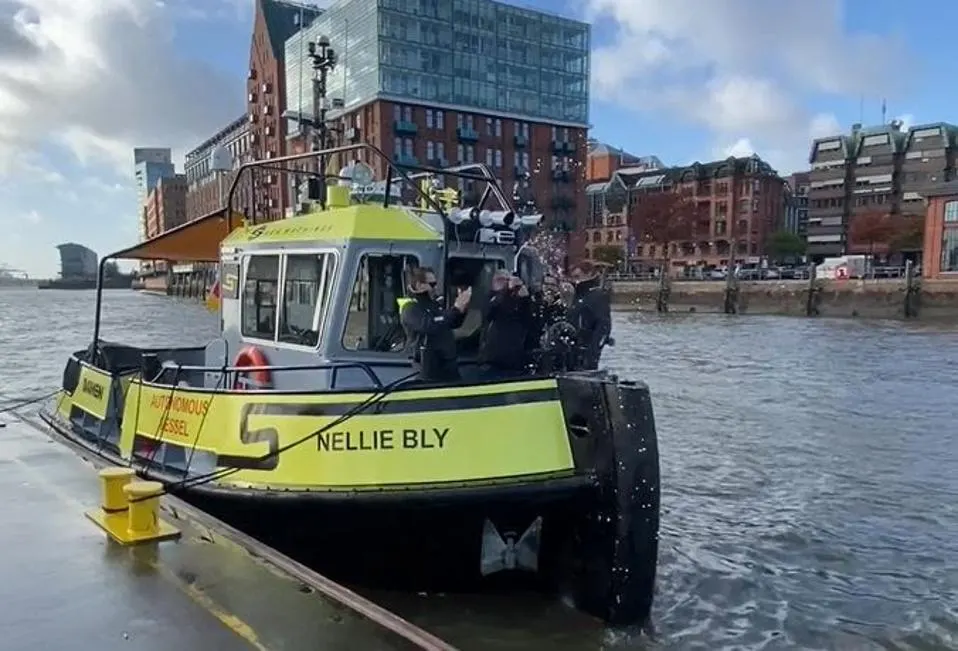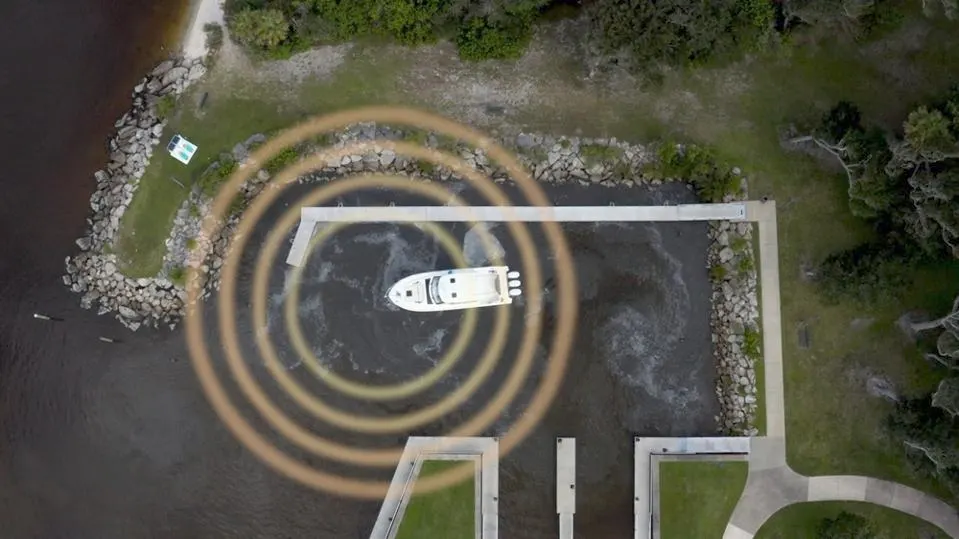Mar 6, 2024,06:58am EST
Docking a boat resembles parking a vehicle, occasionally tight and a bit challenging. While many cars and trucks now boast technology that aids or fully manages this task, an increasing number of commercial and recreational boats are autonomously navigating into docks.
A fresh collaboration between marine powerhouse Brunswick Corporation and tech firm Apex.AI seeks to elevate docking and other autonomous functions using cutting-edge technologies akin to those propelling today’s software-defined vehicles.
Brunswick, holding ownership of 60 marine brands including Boston Whaler and Sea-Ray, is actively pursuing enhanced autonomous capabilities for its vessels under a strategic initiative called ACES—Autonomy, Connectivity, Electrification, Shared Access.
This new partnership with Apex.AI integrates Brunswick’s autonomy systems with Apex.AI’s middleware, aiming to boost functionality and performance as part of the company’s ACES strategy.

Brandon Ferriman, autonomy & ADAS programs director, Brunswick Corporation. BOPPHOTO, LLC
“We have a system designed right now for auto docking, but what happens when I want to make a more basic system for a pontoon boat and I need more simple sensors, maybe just mono cameras instead of stereo cameras, or on the other side, I want to do a more technical system that operates those autonomy features,” explained Brandon Ferriman, Brunswick’s director of autonomy & ADAS programs, in an interview. “I need something that looks further, so being able to substitute the sensors in that, having that robust middleware, gives us that flexibility.”
Apex.AI CEO Jan Becker elucidated that his company’s middleware serves as a conduit between incoming data and the software operating a system, simultaneously enhancing performance in a “safe and reliable way so that the software doesn’t crash and fulfills safety and security requirements.”
Autonomous, or automatic docking, has been a feature available for several years, with the two terms essentially synonymous, stated Ferriman. However, he highlighted that integrating Apex.AI’s middleware into the Brunswick system enhances the capabilities of its autonomous docking feature.
“When you enter into a marina it’s seeing everything around it and starts to build a map in front of you on the screen and it’s using AI elements,” Ferriman elaborated. “If you come to places often it has a memory of that place and now it renders faster because it only looks for differences—was a boat there yesterday it’s not here today, that kind of stuff. It might add real-time monitoring.”
While sparing recreational boaters the chore of docking their craft, commercial mariners have been employing autonomous features, including self-driving, for some time.

Sea-going tug Nellie Bly during a stop in Copenhagen, Denmark during a more than 1,000 mile journey ... [+]SEA MACHINES ROBOTICS
In 2021, a tugboat outfitted by Boston’s Sea Machines Robotics achieved a journey spanning over 1,000 miles from Hamburg, Germany, around Denmark, autonomously navigating for more than 96% of the voyage.
Ferriman and Becker draw parallels between advancements in maritime autonomy technology and the transformation witnessed in the automobile industry towards more computerized or software-driven vehicles.
Drawing from their respective backgrounds—Ferriman’s tenure at auto suppliers TRW and ZF, and Becker’s leadership at Apex.AI, where its middleware is increasingly utilized in the automotive sector—they assert that this collective experience informs the transition toward software-defined vessels.

Jan Becker, CEO and co-founder, Apex.AI.APEX.AI
“It’s really not substantially different from a driver assistance system in a car in developing and launching such a system into a market,” said Becker. “Once you have the software-defined foundation in the boat and the appropriate hardware, there are numerous opportunities down the road to deploy more software-defined systems.”
“In the marine space, we have these more advanced propulsion systems, along with autonomy features,” added Ferriman. “There’s the beginning of the electrification wave now here too, and all those battery management systems and software that’s going to be involved there.”
The commercial launch for vessels featuring autonomous docking under Brunswick’s brands is slated for 2025, according to Ferriman, who highlighted the company’s intention to also offer the technology to other boat manufacturers.
The public will have the opportunity to witness the self-docking systems in action at a series of demonstrations preceding the launch, Ferriman noted.
Autonomous docking marks just the beginning of a journey for the recreational maritime industry as it explores the potential of the technology, according to Ferriman, who stated, “We haven’t fully defined an autonomous boat yet, but continue to explore how we can integrate more autonomy into features representing the next generation systems.”

